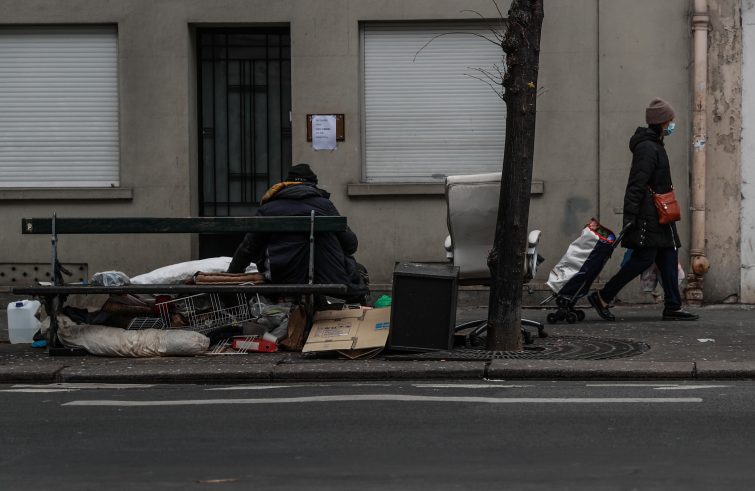
“The health crisis opened the country’s eyes to a situation that normally goes unnoticed: an increasing number of families, singles and young people require food aid to be free from hunger. According to the Minister of Solidarity and Health, 8 million people faced this humiliation in these last months of 2020, amounting to 12% of the overall population. Eight times more than in the 1980s. Everyone seems to be oblivious to it or, worse still, they are getting used to it. It is a shame for our wealthy country!” These are the opening remarks of the Report on the State of Poverty in France 2020, presented November 12 in the light of the critical circumstances that Caritas France is facing. “This silent tragedy is experienced every day by the volunteers of Secours Catholique”, reads the Report. The request for food aid follows the request for assistance, and is the second major factor that leads 1.4 million people to turn to Caritas for help every year. Yet the reasons are simple, and they are due to “insufficient income.” Once the rent and bills have been paid, some of which continue to rise (especially water and electricity), people are left with such a small amount of money- 2 to 9 Euros a day, per person- that accessing basic necessities – food, sanitation products, telephone, dental care, clothing, transportation, leisure – proves impossible. “Secours Catholique will never accept this tragedy,” said Véronique Fayet, president of Secours Catholique. “We are still suffering the consequences of the financial crisis of 2008, a lesson which we have unfortunately not learned from. ” She added with concern: “We are preparing to face the next difficult months due to the health crisis.”
Owing to the economic and social repercussions of the Covid-19 pandemic, “France will cross the threshold of ten million poor in 2020″
Solidarity and fear of the future. In 2019, Secours Catholique-Caritas France could count on 64,300 volunteers divided into almost 3,500 groups. Help was given to 1,393,000 people: 740,000 adults and 653,000 children. The Report depicts a scenario of growing uncertainty. “I used not to worry so much about the future,” one person said, “I believed that I would manage to cope somehow. But today we have no idea what will happen next, we have to remain vigilant.” For many, 2020 is the year of all dangers: health risk, loss of income, isolation due to confinement, fear of others, unemployment.
The most frequent question is: “How will we manage?”.
Standard of living and employment. In 2019, the average standard of living of all families assisted by Secours Catholique decreased by 5 Euros compared to 2018, amounting to € 537 per month, well below the extreme poverty line, estimated at € 716 in 2019. 23% of all households received no subsidies, representing an 8% increase compared to 2010. In most cases these are non-national families, including, however, a growing number of foreigners with legal status. Economically inactive people are 57% of those attended to, 12% more than in 2015. Long-term unemployment remains high.
The share of those unemployed for over a year increased dramatically since the beginning of the decade.
In 2019, this situation affected 46% of the unemployed receiving benefits and 63% of the unemployed without benefits.
Request for a €890 minimum guaranteed wage. The presentation of the Report provided the opportunity to submit a proposal. “Once again, we request the creation of a welfare plan that protects everyone from the hardships of life, irrespective of whether they are 18-year-olds or elderly,” said Véronique Fayet. In practical terms, Secours Catholique is calling for the introduction of a guaranteed minimum income for all, including the under-25s who today are not entitled to the RSA (Revenu de solidarité active), equivalent to 50% of the average income in France, thus amounting to €890 per person per month.









